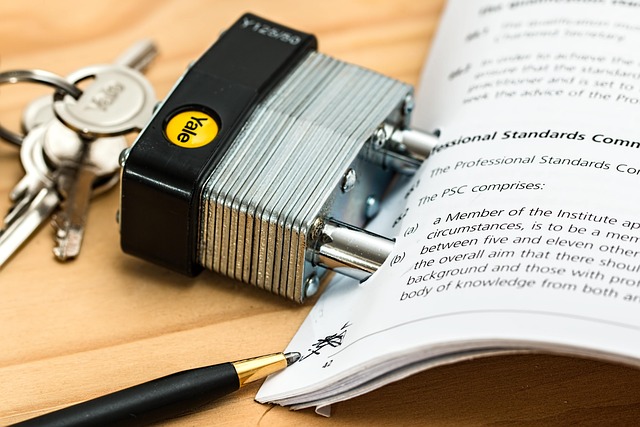Understanding lease agreements is crucial for students navigating off-campus or shared living situations, empowering them to protect their rights and make informed decisions. These contracts detail rental periods, financial commitments, maintenance responsibilities, and dispute resolution processes. Students must carefully review terms related to lease term, renegotiation options, break clauses, and default penalties. By comprehending every clause before signing, students can foster positive living environments, avoid unfair practices, and ensure a secure housing experience throughout their stay.
Navigating lease agreements can be a complex task for students, especially as they enter the world of independent living. This comprehensive guide aims to demystify the process by providing an in-depth understanding of student housing lease agreements. From defining key terms and rights to negotiating favorable conditions, we equip readers with essential knowledge. We explore common pitfalls and offer strategies for renewal or termination, empowering students to make informed decisions. By the end, you’ll be equipped with the tools needed to navigate these agreements like a pro.
- What is a Lease Agreement and Why is it Important?
- Key Components of Student Housing Leases
- Understanding Your Rights and Responsibilities
- Negotiating Terms: What Students Should Know
- Common Issues in Student Lease Agreements
- Renewing or Breaking a Lease: Options and Considerations
What is a Lease Agreement and Why is it Important?

A lease agreement, or simply a lease, is a legal contract between a property owner (landlord) and a tenant that outlines the terms and conditions for renting a property, in this case, student housing. It’s an essential document that provides clarity and protection for both parties involved. By understanding leases, students can ensure they know their rights and responsibilities while living off-campus or in shared accommodation.
Knowing how to read and interpret lease agreements is crucial for students as it allows them to make informed decisions about their living arrangements. Leases typically include details such as the rental period, rent amount and due dates, rules regarding subletting and guests, maintenance obligations, and procedures for resolving disputes. Students should pay close attention to these clauses to avoid any surprises or misunderstandings with their landlords later on.
Key Components of Student Housing Leases

When navigating lease agreements for student housing, it’s crucial to understand the key components that make up these contracts. Student housing leases typically include details about the property, rent amount and due dates, terms for security deposits, and provisions for maintenance and repairs. These agreements also outline expectations regarding occupancy, subletting restrictions, and rules for common areas.
Understanding leases involves closely reading through every section, paying special attention to clauses related to late fees, termination policies, and dispute resolution processes. Key phrases like “lease term,” “renegotiation options,” “break clause,” and “default penalties” are essential to identify. By thoroughly comprehending these components, students can make informed decisions, protect their rights, and ensure a positive living experience during their time in student housing.
Understanding Your Rights and Responsibilities

Navigating lease agreements in student housing involves a clear understanding of your rights and responsibilities. Before signing any contract, thoroughly read through every clause to grasp what’s expected of you as a tenant. This includes regular maintenance duties, payment terms for rent and utilities, and policies on subletting or hosting guests. Understanding leases empowers you to make informed decisions and avoid potential pitfalls that could affect your living situation.
Knowing your rights is equally crucial. Familiarize yourself with local tenancy laws that protect students from unreasonable eviction notices or unfair rent increases. Being aware of these provisions gives you the confidence to address any concerns with your landlord and ensure a safe, comfortable stay in your off-campus housing.
Negotiating Terms: What Students Should Know

When negotiating terms in student housing lease agreements, students must develop a keen understanding of leases. This involves thoroughly reading and comprehending every clause before signing. Leases often include details about rent amounts, payment deadlines, length of stay, maintenance responsibilities, and subletting rules. Students should clarify any ambiguous terms and ensure they are fair and protective of their rights.
During negotiations, students can advocate for modifications to better suit their needs. This might include securing a lower rent, extending the lease term, or adding specific amenities. Being proactive and well-informed allows students to navigate lease agreements with confidence, ensuring a positive living experience while adhering to legal obligations.
Common Issues in Student Lease Agreements

Student lease agreements can be a minefield of complex terms and conditions, often leading to common issues that students may not initially anticipate. One of the primary challenges is understanding the fine print; legal jargon can make it difficult for tenants to grasp their rights and obligations. Many students may feel pressured to sign without fully comprehending the agreement, especially when dealing with urgent housing needs.
Another frequent problem arises from unforeseen circumstances. Students might find themselves in a situation where they need to break the lease early due to unexpected changes in academic programs or personal situations, which can be costly and challenging. Additionally, property managers may not always uphold their end of the bargain, leading to poor living conditions or unfair practices, further complicating the process of understanding and navigating leases effectively.
Renewing or Breaking a Lease: Options and Considerations

Renewing or breaking a lease in student housing involves careful consideration and understanding of your rights and obligations. If you plan to stay, review the renewal terms outlined in your current agreement. These often include notice periods and potential rent increases. It’s crucial to act within the specified timeframe to ensure continuity in your accommodation.
If moving out is your decision, breaking a lease comes with its own set of rules. Some landlords might charge early termination fees or require you to find a new tenant to cover the remaining term. Understanding these conditions beforehand can help prevent unexpected financial burdens. Thoroughly reviewing and comprehending lease agreements is key to making informed choices regarding your student housing.






